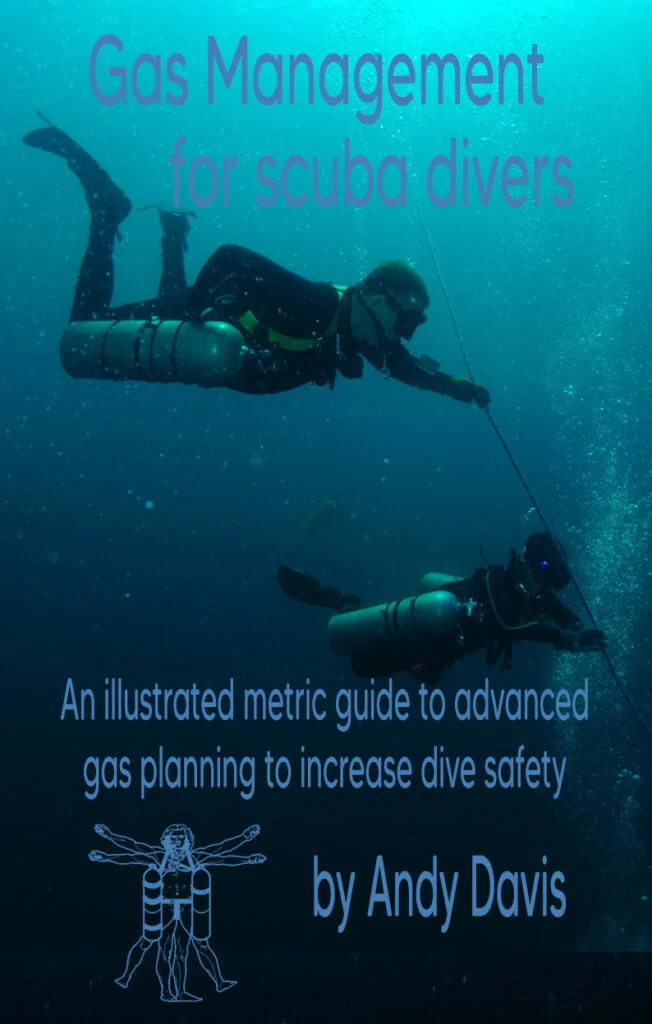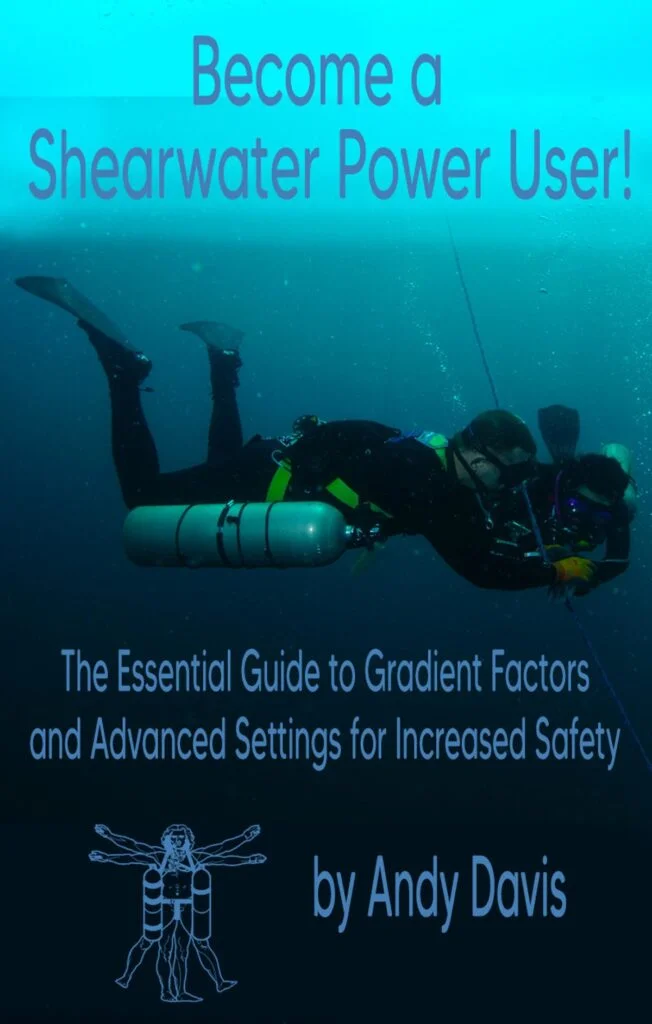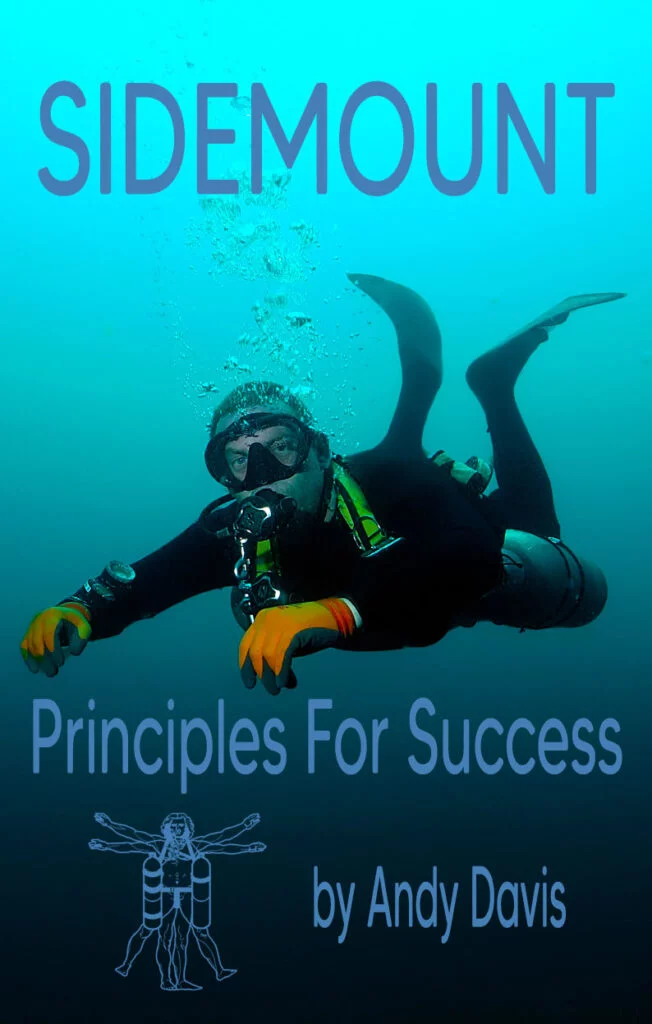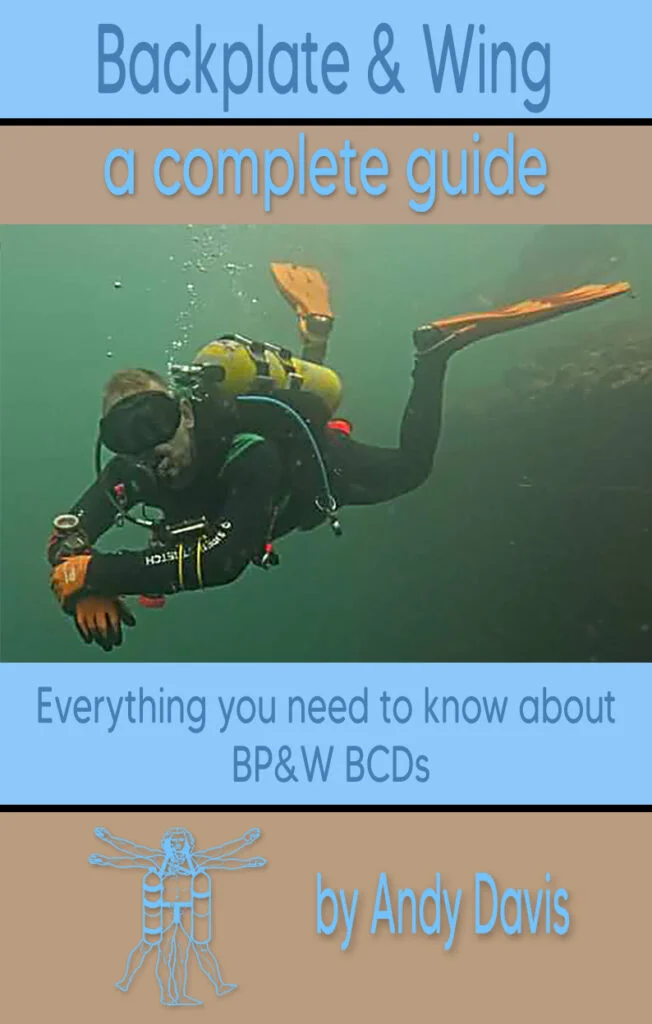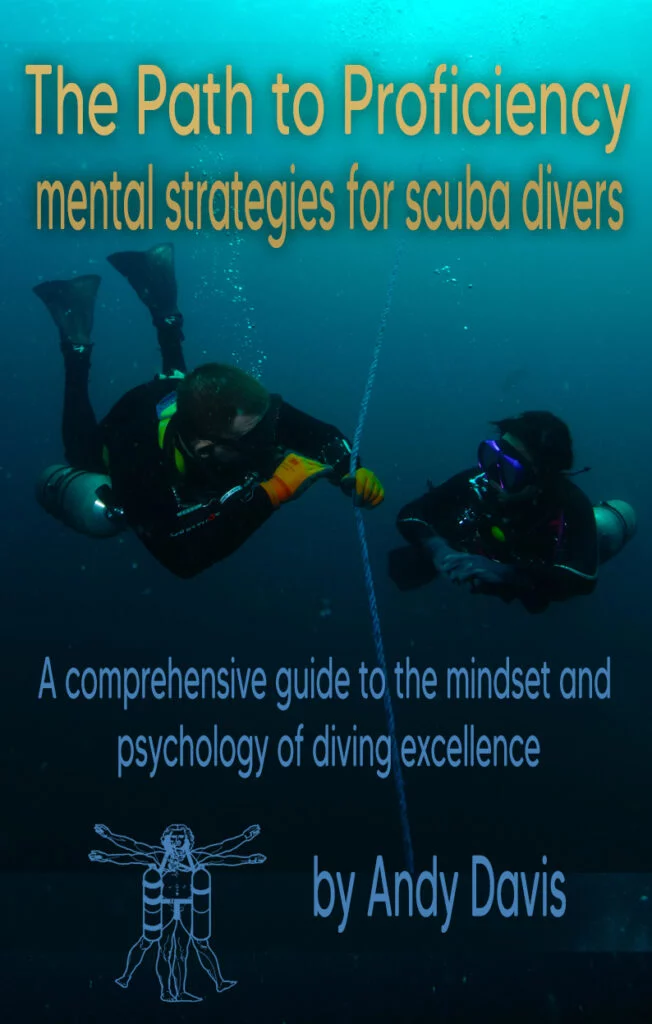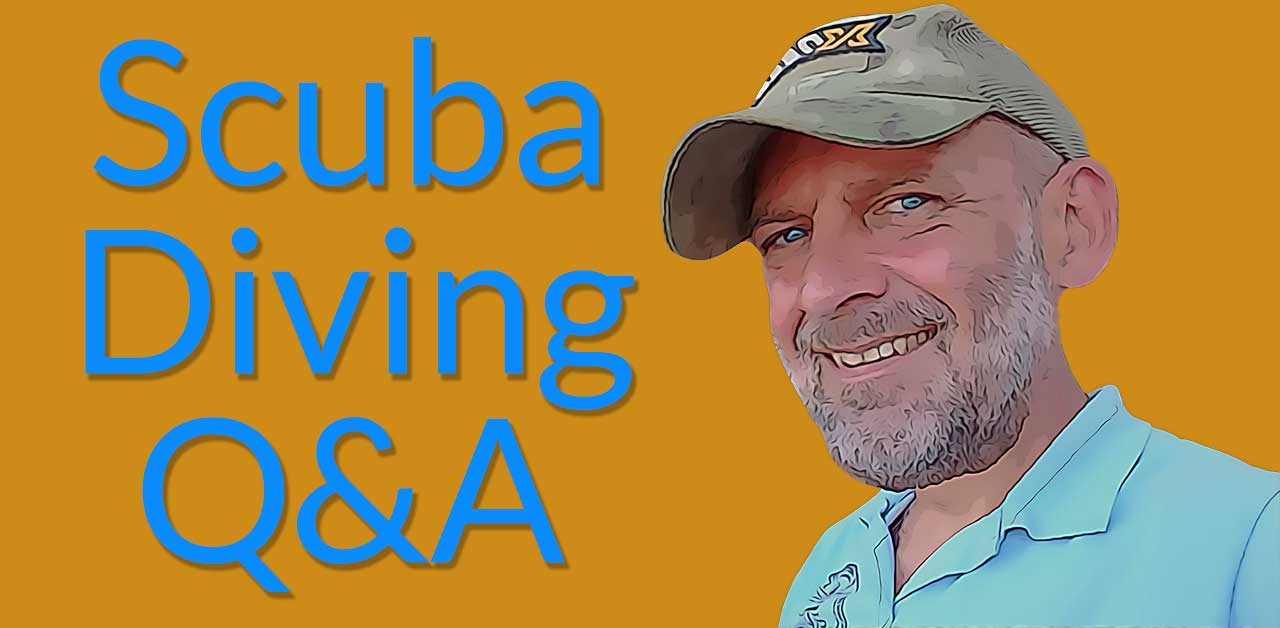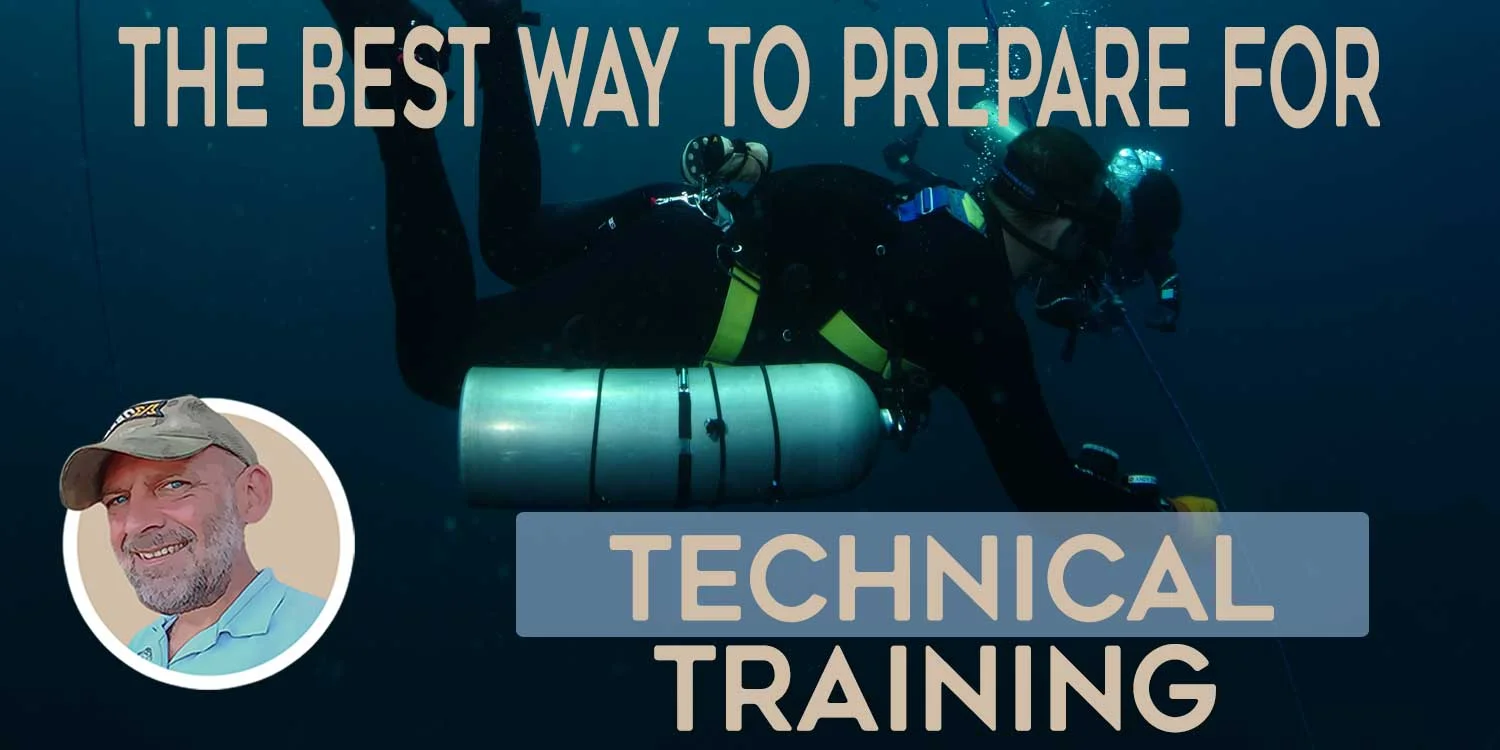5 Steps To Prepare For Technical Diving Courses
Technical diving training has a very steep learning curve and the failure rate is significantly higher than in recreational-level dive training. It’s important to prepare effectively for technical diving courses if you want to ensure success and maximize the level of proficiency you attain during training.
What proficiencies do technical diving courses focus on delivering?
Technical diving courses aim to deliver the specific knowledge, techniques and protocols necessary to plan and conduct decompression diving; typically below recreational diving depths and utilising multiple breathing gas during dives.
Skills and protocols taught on a technical diving course typically include;
- Accurate gas management
- Decompression science theory
- Advanced diving physics and physiology
- How to plan decompression stop ascents
- Bottom, travel and deco gas selection
- Contingency/emergency planning
- Use of fully redundant primary gas sources
- Advanced equipment principles and configuration
- Team diving principles
- Gas analysis and cylinder marking
- Comprehensive pre-dive checks
- Gas switching protocols
- Descent and bubble checks
- Advanced communication and signals
- Technical diving mindset
- Risk management and mitigation
- Stress resilience and management
- Rescue techniques in tech diving gear
It is an incredibly comprehensive syllabus and there is a very steep learning curve to master it proficiently during the limited timescale of a tech course. When a finite-duration training course has a very steep learning curve, there will be a higher failure rate when divers cannot keep pace with the progressively increasing complexity and challenge of training dives.
In an ideal world, a higher failure rate on technical diving courses should result in either remedial training or the offer to re-take and finish the course at a later date. Unfortunately, less scrupulous instructors may resort to simply lowering the necessary performance standards for certification. That happens more frequently within diving agencies that write vague course standards that can be flexibly interpreted by the instructor to facilitate every student passing the course.
Needless to say, if training standards are interpreted and adjusted downwards to meet a lower level of student proficiency the only outcome is that people become certified to conduct higher-risk diving without having the ability to mitigate those risks. They are put in danger, even if happily gratified to have been given a tech-level certification and unaware of their competency shortcomings.
As you prepare for technical diving courses, it is important to accept that you have responsibilites to make yourself as proficient and “teachable” before the training starts.
What technical diving courses cannot reasonably deliver
Technical diving courses are not designed to remediate significant proficiency deficits in core scuba diving skills.
The intensive syllabus on technical diving courses has to assume that tech students will already possess the experience and training necessary to have developed robust fundamental diving proficiencies as a prerequisite for training.
When a student struggles with fundamental diving skills on a technical diving course it will drastically impede their ability to absorb new proficiencies. Nobody can give their full attention to learning something new when consistently distracted and frustrated by difficulties with underlying skills.
In entry-level scuba training, that shortcoming is typically avoided by letting open-water students kneel on the bottom when learning new skills. It ensures they aren’t distracted by having to maintain buoyancy, trim and positional control. Whilst that method can be very guilty of ingraining bad persistent habits, it is an effective means of ticking off a checklist of course skills within a short timescale.
The same solution is not practicable in technical diving courses. The student will have to perform advanced-level training dives and all of the skillsets needs to be performed in mid-water; often decompression stop depths where precision buoyancy control is critical for safety. Kneeling on the bottom to learn tech skills provides zero preparation for realistically performing those skills on subsequent dives.
If a tech diving instructor intends to teach you skills kneeling on the bottom you should immediately walk away. That is unacceptably low-quality, disreputable, training and will not develop the proficiency you need to be a safe technical diver.
What prerequisite skills are needed for a technical diving course?
- Precision buoyancy control
- Consistent flat horizontal trim
- Efficient propulsion technique
- Basic static manoeuvring skills
- Reliable situational awareness
- Conscientious dive planning and preparation
- Diligent application of the buddy system
- Attention to detail
- A risk-averse mindset
There is nothing advanced in nature about any of those requisite competencies. All of them should be taught in entry-level diving and developed progressively as you progress through AOW and Deep Diver level training. In an ideal world, they should also improve consistently as more diving experience is acquired.
Regrettably, recreational-level diving training often falls far short of developing and reinforcing those core competencies. Too many courses fixate upon a brief tick-list of new skills; usually just casually inserted into what are otherwise just fun dives. No formal assessment or focused remediation of core skill deficiencies occurs. Weak diving competency is carried along from one course to the next; left unaddressed and unimproved.
Likewise, gaining more experience in diving doesn’t improve fundamental skillsets unless the diver actually has a conscious intention to improve their competency. There have to be specific developmental goals planned for dives. The diver needs examples of what increased proficiency looks like. They need to set aside some time and attention on their dives to actually practice those skills. Ideally, they need timely feedback on that practice.
At worst, just going diving without any specific developmental goals can be counter-productive. If unaddressed, bad habits and improper skills can become ingrained.
What steps best prepare for technical diving courses?
Step #1 Fundamental skills deliberate practice
Get your core fundamental skills to a very high level. You can’t build advanced diving skills upon flawed basic proficiencies. A number of agencies offer fundamental skills courses that are focused on developing a prerequisite skillset for technical diving training.
In short, you should aim to be an exemplary scuba diver BEFORE attempting to become a technical diver.
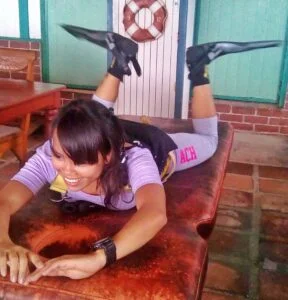
Bad diving plus technical training only equals bad technical diving.
Agency-delivered fundamental skills training
GUE has the most highly-regarded fundamentals course because it is uncompromising pass/fail; a benchmark of competency. A few agencies offer similar training, albeit not with a strict pass/fail benchmark.
Reputable fundamental diving skills courses include:
- RAID: Performance Diver
- UTD: Essentials of Tech
- ISE: Basics of Exploration (Tec)
- GUE: Fundamentals
There is little value in doing core diving skills courses with instructors who aren’t themselves qualified at technical diver level; but ideally they should be tech instructors. Without that level of training and experience they are unlikely to grasp the standards being sought, or know how to attain them. The average recretional diving instructor has mediocre fundamental diving skills at best; it’s not something that’s either required or assessed in recreational instructor training for certain large dive training agencies.
If you don’t have funding or access to complete a formal fundamental skills training course, then you have the option to either seek expert mentoring or conduct self-practice.
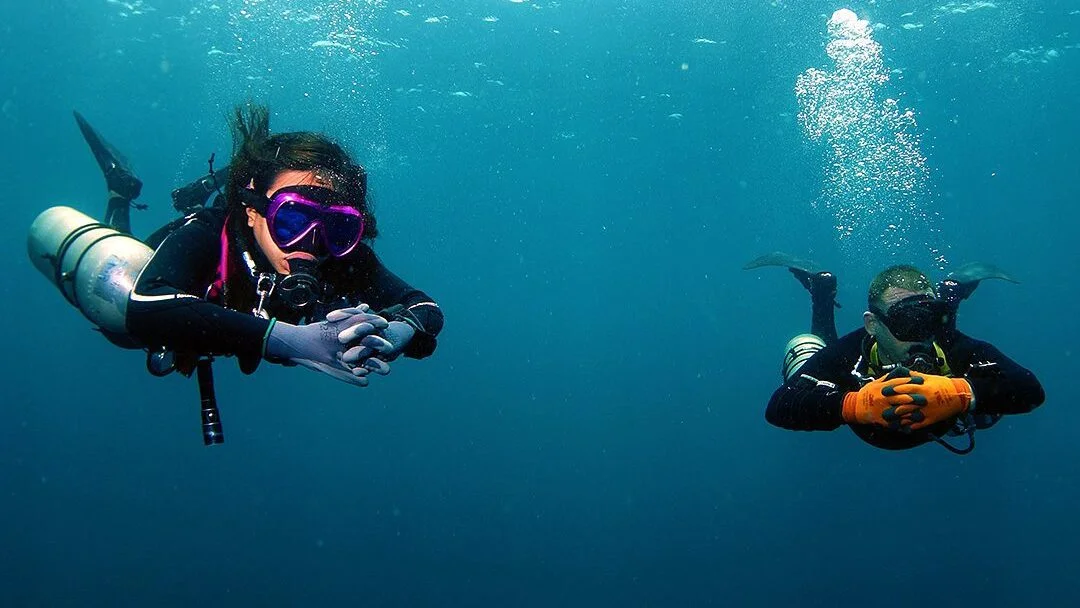
Seek out a competent technical diving mentor
Some technical diving instructors will offer less formal training in the form of skills clinics or mentored training. These can be very efficient because they have the flexibility to focus specifically on your weaknesses, rather than following a set curriculum and syllabus. If you cannot find a technical diving instructor who’ll provide that service, you can consider whether there is a reputable technical diver who can coach you on core skills development. That could be as little as doing dives together and asking for constructive criticism post-dive.
Apply deliberate practice for self-development
If none of those options was possible, then you can implement a routine of deliberate practice for yourself. Firstly, read: What is Deliberate Practice for Scuba Divers? Practice time is an investment and you want to make sure it is as efficient for learning as possible.
When self-developing your fundamental skills, do make use of the many good resources available online; especially video media. Absorb as much detail as possible, spend time visualizing doing the skills before practicing them in-water. The more accurate and realistic you can make your visualizations, the better your performance is likely to be. If possible, take a GoPro with you when you practive. Assess the footage critically after practice and make notes for improving your next training session.
It helps to have a competent, like-minded, and motivated buddy when doing routine skills practice.
This is a good example of the high-quality diving skills media available:
If you don’t have any access to the water for routine deliberate practice on scuba gear, there are still many skills you can improve on the surface without dive kit, or through dry-land repetitive practive.
- Propulsion and maneuovering skills can be learned in a swimming pool with just a mask and fins. You don’t need to be submerged to develop these skills. Techniques like frog kick and back kick can even be developed in bare feet; if that’s the only opportunity you have.
- Repetitive skills can develop ingrained muscle memories; especially with basic equipment familiarity and operation. Lots of sub-skills can be rehearsed and perfected without ever getting into the water. Use your imagination to break down major scuba skills into smaller sub-skills. Identify which of those small sub-skills can be practised out of the water. There is a lot!
- An example is wearing your harness and repeatedly clipping and unclipping a bolt snap to the harness D-rings. You can do that on the couch whilst watching TV. Repeat the action until you get bored and it becomes unconscious. That’s typically an hour or more. Do that routine a few evenings in a row. Refresh the skill occasionally It’s incredibly useful and saves a lot of cognitive workload when you’re in the water.
- You can dry practice skills like DSMB deployment. Watch a good YouTube video of how to do it optimally. Practice doing that at home. Focus on the small details. Repeat it far more times than you feel is necessary. You aren’t just learning, you are ingraining.
Step #2 Research your technical diving instructor
As you prepare for technical diving courses, you will have to shortlist and select a prospective tech instructor. There are two important reasons why you should diligently research your technical diving instructor:
- To ensure they are reputable and competent
- To understand their philosophies on technical diving
I cannot overstate how important it is to select a highly reputable and legitimately competent technical diving instructor. It’s actually harder than it sounds. When you aren’t yet an experienced technical diver you won’t have much capacity to accurately gauge a tech instructors’ competency.
Validating technical instructor reputation and competency
As technical diving increased in popularity over recent decades, less scrupulous instructors took advantage of that. The number of cowboy instructors who just see technical diving as another product to sell seems to increase year-by-year. They won’t just train you insufficiently, they’ll use flattery and false praise to boost your confidence and sense of achievement from their lacklustre technical diving courses. False confidence coupled with low proficiency is the worst possible outcome for your safety as a technical diver.
The good news is that technical diving is a close-knit community and it is global. With respect to tech instructors, reputation and competency go hand-in-hand. Reputation arises from competency.
Reach out to the technical diving community for recommendations, or to provide peer references for a technical instructor you have short-listed.
- Research globally, not just locally. It’s easy for more isolated diving communities to become out-of-step with global standards. I’ve seen tech instructors who were “king of the hill” amongst their local crowd, but wouldn’t gain any repute in the wider tech community.
- Seek peer recommendations, not student recommendations. Ex-students are rarely critical of their instructors. It can boost their own esteem to play up how wonderful their instructor was. Students don’t normally realize they’ve had bad training until a much later date; when they finally encounter a great instructor.
Highly-reputable technical diving instructors don’t work for peanuts or teach anonymously in recreational sausage-factory scuba schools. They are passionate specialists and exclusively teach what they specialize in. You won’t find them teaching open-water students and running “discover scuba diving” all month before teaching your technical diving course over a weekend. They’ll have decades and thousands of dives worth of technical-level diving experience. They’ll have done technical diving expeditions and explorations. It won’t be something they do occassionally, it’ll be the vast majority of their diving activity.
Walk away from any dive school that tries to sell you tech training without pro-actively informing you who your specific instructor will be. If a dive school has a dedicated, reputable specialist tech instructor on staff, they’ll know it’s a strong selling point. They’ll market that person heavily; on their website, in social media and over the counter in their shop. Being assigned to some anonymous instructor, who isn’t identified and highlighted in a dive shop’s marketing, pretty much guarantees that there’s no reputation to speak of.
Understanding an instructor’s philosophies to technical diving and instruction
Technical diving has different philosophies which determine aspects like equipment and protocols standardization, best-practices adherence, regional-specific diving approaches, performance standards and the long-term goals of training. Similarly, an experienced technical diving instructor will have firm ideas about how best to deliver their training.
As you prepare for technical diving courses it can pay dividends to start understanding these differing philosophies. It helps you to choose what best aligns with your own goals and needs. In most cases, the technical diving instructors’ philosophies start the fledgling technical diver down a particular developmental path and establish certain beliefs and viewpoints that persist over time.
Examples of well-known technical diving philosophies include:
- Do It Right (DIR): a highly standardized approach to technical diving that emphasizes the adoption of widely-agreed best practices in equipment configuration and diving protocols. This reduces the flexibility for locally-ideal practices but ensures consistency with any similarly trained diver across the globe.
- Beginning With The End In Mind: A belief that technical diving training should focus upon cumulatively developing a diver based upon the highest potential level of future training. This avoids the need to re-configure equipment or adjust protocols as the diver moves from one training level to the next. Training courses are not “stand-alone”, they have to prepare the student seamlessly for subsequent training courses.
There are a lot of debates, sometimes quite heated and passionate, about technical diving philosophy in online tech community groups. They can make for an entertaining and enlightening read. Do be aware that less experienced technical divers can sometimes be a little over-zealous about their tech diving philosophy of choice. Sometimes they’re doing nothing more than parroting and regurgitating whatever belief their instructor and/or training agency sold them.
Keep an open mind, listen to every side of a debate and make a mental note to never become a zealot yourself in the future. Older, wiser tech divers know that there’s always a variety of approaches and nothing is ever black and white.
A good technical diving philosophy can be reasoned and explained. It will have compelling merits. But it should also acknowledge it’s limitations and the situations where it may not be ideal for everyone. Keep your eyes and ears open for those tech divers who can justify their viewpoints by critical thinking, compelling logic, and referencing real-world experience. Be wary of those who merely promulgate dogma and respond through the ego when that is questioned.
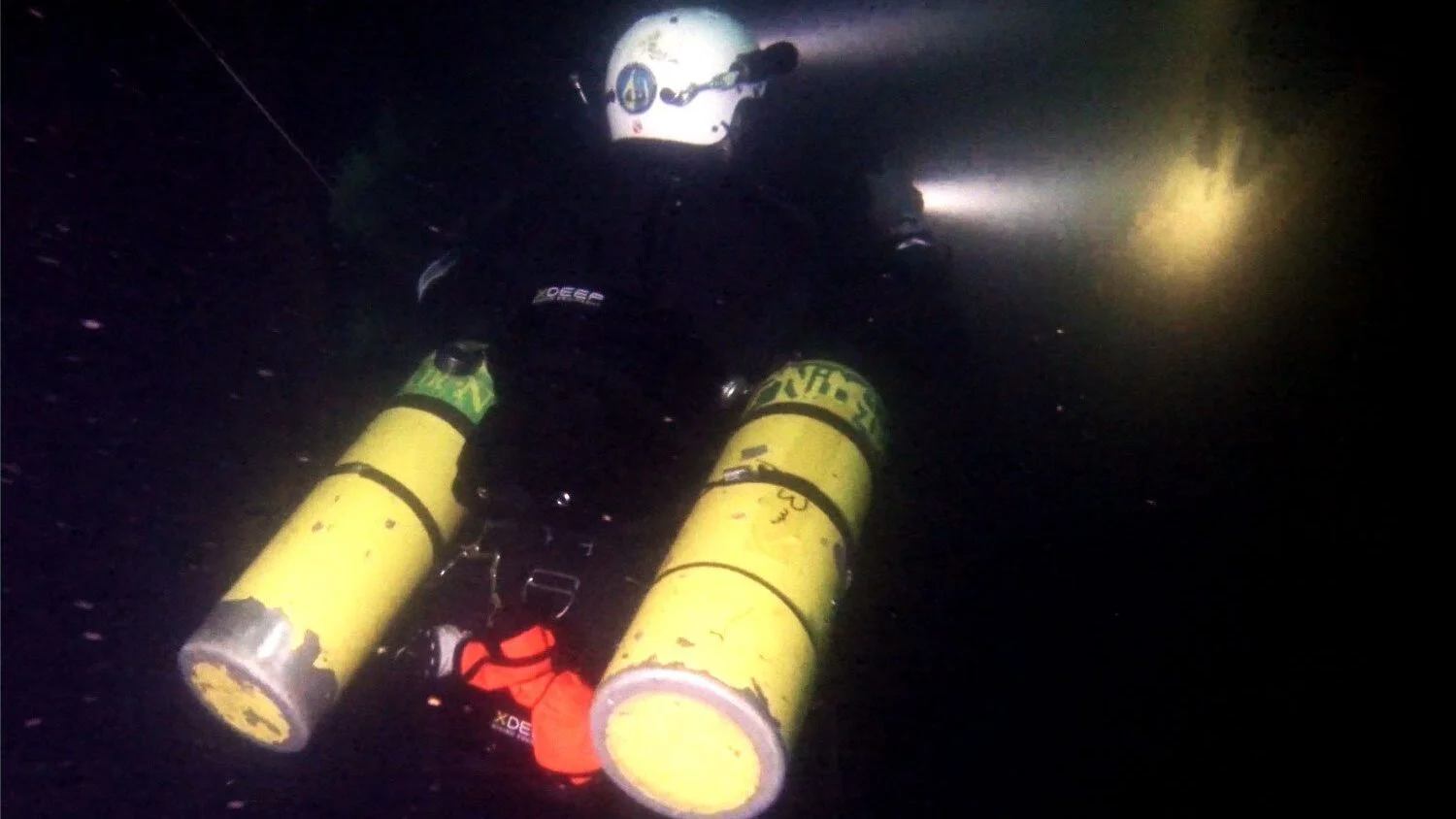
The instructor’s teaching philosophy is also an important factor when you are preparing for technical diving courses. As the technical diving instructor acquires greater teaching experience, they will establish individual beliefs and outcome priorities in their teaching.
These can be hard to categorise because they’re often so uniquely individual to the instructor.
To give an example, these are some teaching philosophies that guide my own technical diving courses:
- Fundamental skills should be developed to an unconscious performance level.
- Unconsious-level skills preserve more cognitive capacity in the brain.
- Increasing unutilized cognitive capacity accelerates learning unfamiliar skills.
- Reserving the majority of cognitive capacity enables greater situational awareness.
- Over-training causes high cognitive exertion that shuts down learning capacity; diverting the student into mindless actions with counter-productive shortcuts.
- Students must be enabled to accurately gauge their own proficiency by allowing them to safely make unforced errors.
- Unrealistic training has little or no value in real-world emergencies
- Guiding a student to establish their own conceptual understanding of theories and concepts is far more powerful and long-lasting than just delivering reams of information to be memorized.
- Assess a student’s understanding by investigating their capacity to visualise and manipulate a subject or activity in their mind’s eye.
- Stress resilience in emergencies is primarily a product of possessing pre-programmed initial responses and, subsequently, of realistically knowing you have an answer to surviving the situation encountered.
- Skills and knowledge won’t be properly applied after certification unless the student is inspired to develop a prudent, conscientious and risk-averse technical diving mindset.
The list goes on, and I could probably talk for an entire day about the snippets of wisdom that I’ve worked out over the years. None of which was ever written in a diving instructor or technical diver manual.
The main point is that a very competent technical diving instructor will have well-developed teaching philosophies and personal beliefs that shape the way they deliver their training. Inexperienced instructors won’t have that.
Also, consider the teaching style of the instructor: mentoring and coaching tends to lead to the most successful outcomes. Whereas by-the-book instruction that merely regurgitates a syllabus and ticks skills off a list tends to have very weak results. An instructor that delivers nothing more than the contents of the course manual probably doesn’t know much more than the contents of that manual. This is not representative of expertise, passion or professionalism.
Step #3 Research the technical diving agencies
I have seen divers online prepare for technical diving courses and asking for recommendations about training agencies in diving groups. The overwhelming majority of responses tend to be that “the agency isn’t important, choose your training based upon the instructor“.
That advice is both right and wrong. In some circumstances, it is disingenuous and self-serving.
Ultimately, it is the instructor who determines the competency of your technical diving course. However, the instructor is a product of diving agency training, is directed by agency standards, reflects their organizational culture and beliefs, and ultimately has to deliver the syllabus that the agency designs. Those factors can differ incredibly between agencies.
Agency standards and the average quality of instructors
Diving agencies have very different minimum standards when it comes to both instructor qualification and student diver certification. Lower standards do not stop exemplary instructors, but they do allow a greater proportion of lower-quality instructors to operate.
Organizational culture and its effect on instructors
Organizational culture is an under-appreciated factor in an instructor’s performance. In many ways, it can have a more profound effect than written training standards do. If an agency strives for excellence, champions expertise and recognizes exemplary teaching, then its instructors will inevitably adopt those same values. That agency will naturally attract technical diving instructors who appreciate the culture and ethos.
Agencies that tolerate mediocrity, emphasize meeting bare minimum standards, allow fast-track instructor certifications, and only reward sales volumes tend to grow the same attitudes among their instructors. They can create salespeople, not passionate diving educators.
When instructors deep-down know that they represent such an agency, it isn’t surprising that they’ll deny that important differences exist between training agencies when giving their advice.
As you prepare for technical diving courses, do reflect on the organizational cultures of tech training agencies; do they align with your own values and do they reflect the qualities in the sort of instructor you’re searching for?
Agency technical diving course syllabus differences
There are dramatic differences in what agencies deliver in their technical diving courses. Course content, and the associated performance standards, are typically shaped by a number of ethical and commercial factors. Ethics and commercial goals rarely align.
Here are some major areas where diving agency course content differs:
Trimix: the introduction of helium gas mixtures
Some agencies stipulate helium from the outset; in line with DAN’s scientifically-supported published recommendations on gas density and CO2 management. Other agencies conveniently ignore those recommendations and issues; knowing that mandating helium use will drive up course costs, reduce course sales and decrease profitability.
Technical training agencies which specifically mandate a maximum gas density and narcotic depth for tech training include, GUE, RAID, UTD and ISE. Every technical diving course is a trimix course.
Other agencies, especially those that are primarily recreational diving focused, still permit air diving far beyond DAN recommended gas density limits. Trimix is not mandated on technical diving courses until 55-65m training depths feature on courses.
The video lecture below by Dr Simon Mitchell, one of the world’s leading decompression researchers, is invaluable knowledge resource for any diver considering technical diving training;
Modular versus singular technical diving courses
There are generally two approaches that diving agencies use to design their technical diving courses; short-format segmented modules or singular long-format courses.
Generally, long-format (1 week+) singular courses enable far better learning development than multiple short-format (2-day/4-dive) courses that are delivered as stand-alone certification modules.
Six days of continuous training typically enables more efficient training progression than three two-day courses. Besides paying more for three separate certifications, you can’t reach any real definition of technical diving competency in a weekend, after which skills fade away quickly before you can get back in the water again.
Disjointed training doesn’t have the opportunity for continual day-by-day evalution of student strengths and weaknesses as the course progresses. Nor does a 4-dive weekend module have adequate time to pause training and remediate any significant proficiency deficits before continuing.
Mainstream recreational agencies condition divers to the expectation of simplistic 2-day/4-dive speciality training; but that’s really not optimal for application at technical diving levels. Technical diving courses should never be sold or represented like low-level speciality training.
Comprehensive, long-duration technical diving courses do demand significantly more investment from the tech student. That’s not a bad thing at all. Greater investment promotes more motivation from the student.
A highly-motivated technical diving student will commit far more effort and energy into preparing for technical diving courses. They are more likely to adopt a more committed mindset to tech diving.
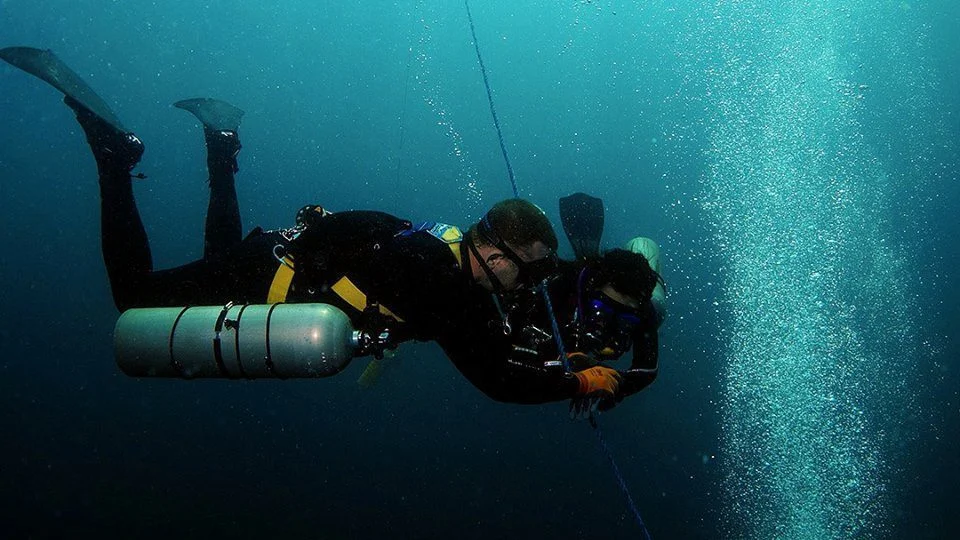
Psychologically, a singular tech course is more daunting. It’s a lot more training without respite to reach ones’ goals. It’s a bigger financial outlay at the outset. All of those factors tempt prospective technical divers towards the low-commitment modular options offered by some agencies. The agencies must know that this course format sells more.
However, the reality is that it increases the chance of successful certification, it leads to greater proficiency upon certification and it enables more ingrained competencies that resist skill fade after certification. The technical diver is likely to be more frequently active after their certification.
Prepare for technical diving courses by finding the course format most likely to develop your motivation and commitment for the training.
Put simply: the more you put into technical diving training, the more you will get out of it.
Long-format singular technical certification courses offered by agencies include:
- RAID: Deco50
- GUE: Tech1
- UTD: Tech1
- ISE: Exploration Diver Level 1
These course all progress the diver to trimix extended-range level diving in one fluid, progressive step.
Examples of modular short-format technical diving courses;
- TDI: AN + DP + ER + Trimix
- PADI: Tec40 + 45 + 50 + 65
- SSI: ER + TER + Hypoxic Trimix
- IANTD: AN/ART + Technical + Hypoxic Trimix
Those courses are broken down into bite-sized modules; each of which can typically be completed in a weekend. There are no advantages to this course format except for enabling reduced commitment to becoming a technical diver.
Step #4 Improve your equipment familiarization
Decide on your configuration; backmount, sidemount or CCR as early as possible to prepare for technical diving courses. To make that decision you’ll have to spend some time considering your long-term diving goals, the peer community you’ll dive amongst, the environment/s where you’ll dive, and what your own personal diving philosophies are. You’ll also have to make sure that you will be able to access a highly legitimate and reputable instructor who is a specialist expert in training on that specific kit.
Consult your prospective tech instructor
If you already have an instructor in mind for your technical diving courses, consult with them for recommendations. Do also ask questions on diving social media groups; but be realistic about the relative authority of the people who’ll give advice. You’re seeking legitimately expert-level advice, not random opinions from divers with little or no experience greater than your own.
Once you’ve done exhaustive research, invest in the gear.
Decide upon and purchase your tech gear configuration
Get your set-up finely optimized and then commit to gaining unconscious-level familiarity with it. As mentioned, do dry practice. If or where possible, use that gear for practice session and take it for dives. Aim for 20+ hours in-water experience minimum; which must favour deliberate skills practice, not just only going diving. Twenty hours is quite achieveable if you have access to a swimming pool or shore diving. Keep it shallow and use the available time to work out optimal equipment handling and operation.
Accumulate experience using your configuration
If you’ll be using sidemount or CCR on your technical diving course, you’ll have to complete equipment certification at recreational level first. Do that as far in advance as possible, to maximize the experience and practice time you can accumulate.
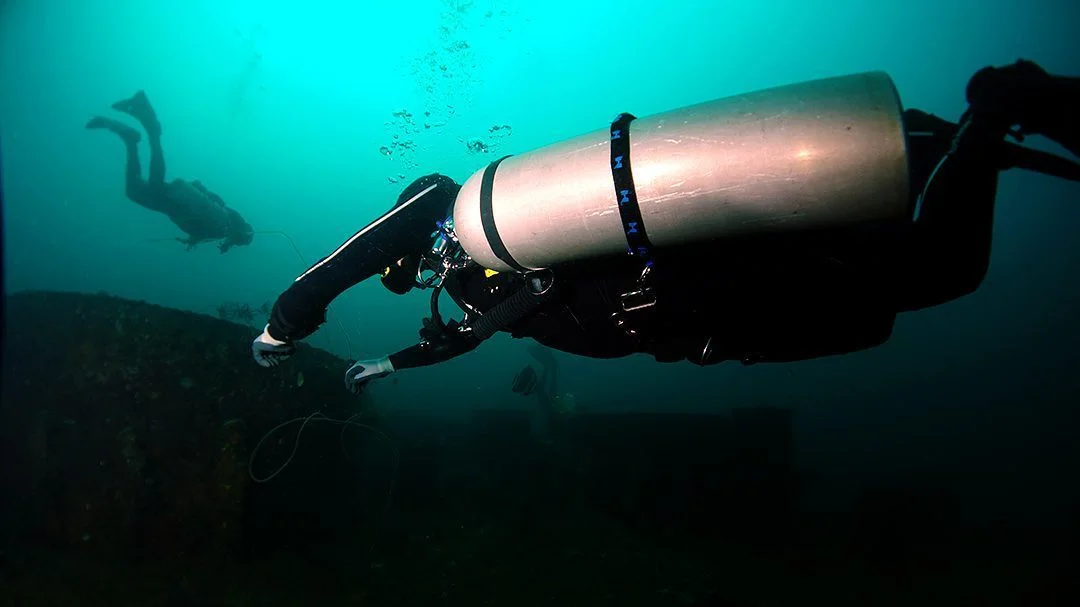
If you’ll be using backmount doubles for technical diving, consider doing an Intro-To-Doubles course. This will ensure you are safe diving with double cylinders, long-hose, etc. There are issues which, if you are unaware, can present a danger. Always seek professional guidance when using new and unfamiliar equipment.
The same is true if you plan to undertake technical diving course in a drysuit. Get appropriately trained and qualified as early as possible. Maximize the amount of in-water experience you have with the suit prior to tech training.
Practice using all of your equipment
On a smaller-scale, follow the same strategy with all your equipment; lighting systems, DSBMs, reel and finger spools, diving computers, pockets and equipment stowage, etc. Treat every item of gear as something that is beneficial to practice with and gain experience using. Make everything second-nature as much as feasilbly possible.
Developing a high quality of ingrained operating familiarity with all of your equipment as preparation for technical diving courses is invaluable. Your equipment needs to work for you, not against you, when under stress in technical training.
Step #5 Develop your self-awareness
As your prepare for technical diving courses, devote some time to cultivating self-awareness.
Self-awareness:
– the conscious knowledge of one’s own character, feelings, motives, and desires
– the ability to see yourself clearly and objectively through reflection and introspection
– the ability to focus on yourself and how your actions, thoughts, or emotions do or don’t align with your internal standards
The process of becoming a technical diver involves a lot of judgements and decision-making. It can be really beneficial to honestly examine and understand the reasoning behind your decisions and what factors influence your judgements.
Self-honesty pays dividends whenever you are tempted to make compromises on your technical diving training. It can prevent judgements and decisions that you may come to regret later.
Acknowledging that there will be counter-productive temptations; the desire for instant gratification, the need to defend and validate the ego, and the frustration of impatience. Accepting that these are natural can help you identify and resist them when they occur.
Identify bad influences who enable or encourage bad judgements to be made. There are usually vested interests driving such behaviours. People who only ever tell you what you want to hear. Who encourage instant-gratification. Instructors who that won’t say “no” to you when it is necessary. Those who deliberately manipulate over-confidence to empower their next course sale.
The last thing you want is to be give a technical diving certification when you are not legitimately proficient to perform high-risk, high-consequence diving. Your long-term safety is dependant upon finding a technical diving instructor who operates as a “gate keeper” into the realm tech diving.
Find an instructor with impecibly high standards and acknowledge that you will be challenged to reach those standards. Have the humility to welcome constructive critique and counselling. Be resilient, display patience and retain your motivation when things don’t go according to you plans. Be prepared to earn your certification; it’s so much more satisfying when you do.
These are all characteristics of leading technical divers. Adopt and apply those characteristics before training commences. Make them a part of you.
Know that making compromises in training progression makes you a compromised technical diver. Short-cuts never lead to the desired destination.
Interesting reads on the subject of psychological development for the pursuit of expertise:
Technical training isn’t about collecting a stack of certification cards. Those cards may impress your recreational diving friends, but only proficiency and expertise count towards your reputation and safety within the technical diving community.
The additional benefit of cultivating self-awareness as you prepare for technical diving courses is that it’ll become a habit you’ll benefit from as a qualified technical diver.
That is especially true with respect to recognizing when faulty heuristic judgements and cognitive biases affect your decision making. Such failures occur as contributing factors in a staggeringly high proportion of technical diving accidents. To learn more on this subject, I highly recommend reading Gareth Lock’s book “Under Pressure: Diving Deeper with Human Factors“.
Recommended reading when preparing for technical diving courses
I hope that this, rather long, article gives you some fresh ideas and new perspectives about how to prepare for technical diving courses. Congratulations for reaching the bottom; you’re already one step ahead in your motivation to become a great technical diver!
I’d love to hear peoples thoughts on the article, or their own reflections from learning technical diving, in the comments section below.
About The Author

Andy Davis is a RAID, PADI TecRec, ANDI, BSAC, and SSI-qualified independent technical diving instructor who specializes in teaching sidemount, trimix, and advanced wreck diving courses.
Currently residing in Subic Bay, Philippines; he has amassed more than 10,000 open-circuit and CCR dives over three decades of challenging diving across the globe.
Andy has published numerous diving magazine articles and designed advanced certification courses for several dive training agencies, He regularly tests and reviews new dive gear for scuba equipment manufacturers. Andy is currently writing a series of advanced diving books and creating a range of tech diving clothing and accessories.
Prior to becoming a professional technical diving educator in 2006, Andy was a commissioned officer in the Royal Air Force and has served in Iraq, Afghanistan, Belize, and Cyprus.
In 2023, Andy was named in the “Who’s Who of Sidemount” list by GUE InDepth Magazine.
Purchase my exclusive diving ebooks!
Originally posted 2022-12-29 03:01:19.


